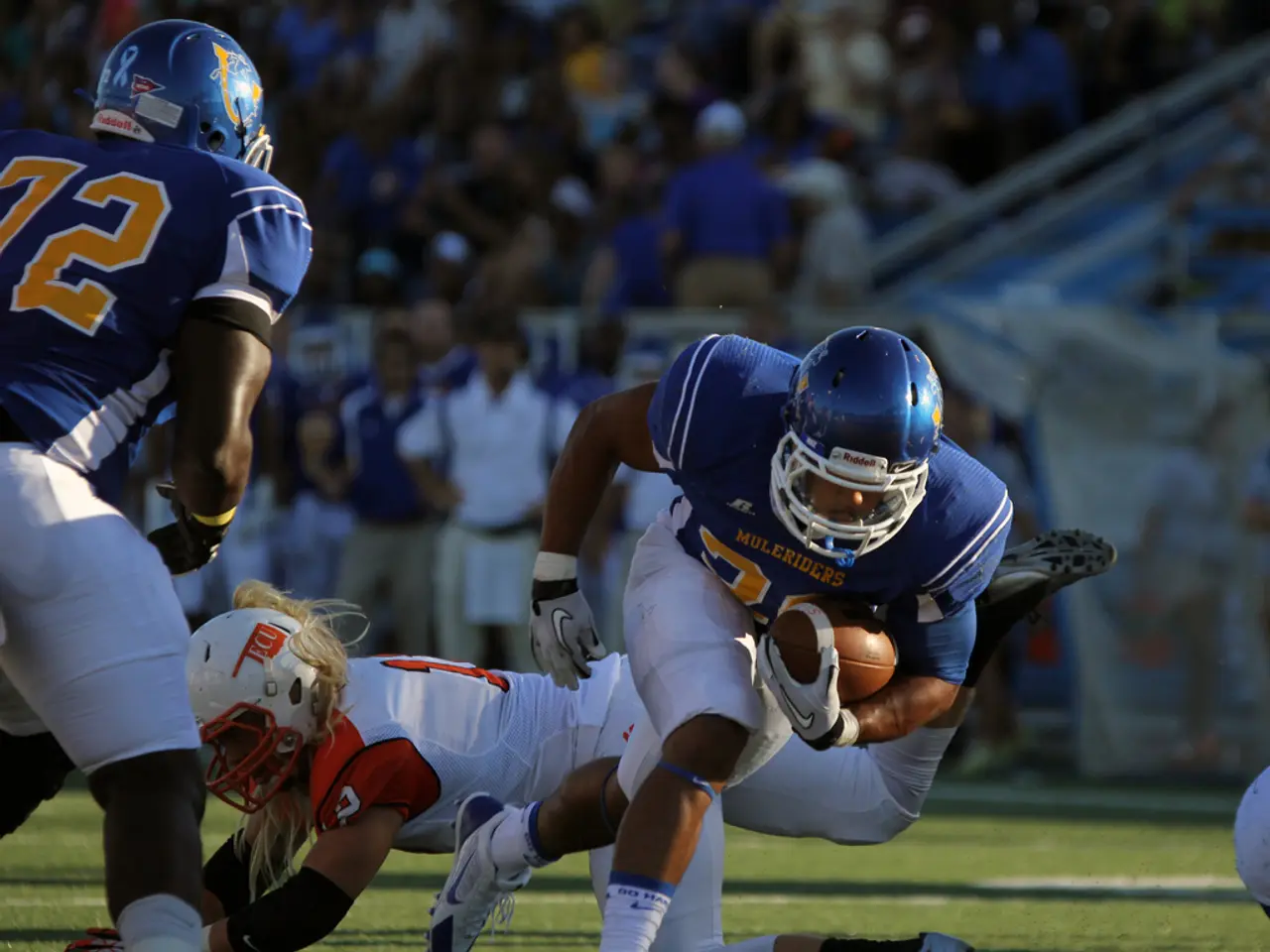Women's Rugby World Cup Introduces Flashing Mouthguards as Signal for Head Impacts
World Rugby has introduced an innovative system designed to combat concussions and head injuries in rugby. Known as the "instrumented mouthguard," these smart devices are equipped with sensors that monitor head acceleration and rotation during contact. If a head impact exceeds a preset safety threshold, the mouthguard flashes red, alerting the matchday doctor and referees to stop play so the affected player can undergo a Head Injury Assessment (HIA).
First implemented in women's international rugby in 2023 and globally rolled out in 2024, the system has been a significant step forward in ensuring player safety. By detecting potential concussions promptly, it allows for quicker medical evaluations, potentially reducing the risk of players continuing with undiagnosed head injuries. The visibility of the flashing mouthguards also raises awareness among officials, players, spectators, and TV audiences about head injury risks.
The technology provides extensive data on head impacts, which World Rugby plans to use to develop better protective measures. Additionally, the system could help identify potential foul play by highlighting dangerous impacts that might otherwise be missed. However, some resistance remains, particularly in men’s rugby, where some players dislike wearing the Bluetooth-enabled devices due to comfort or privacy reasons.
The 2025 Women’s Rugby World Cup will see every player, except for two with braces, wearing the mouthguards. This demonstrates the growing acceptance and enthusiasm for the technology in women's competitions.
The system's implications extend beyond safety assessments. Dr. Lindsay Starling, World Rugby's science and medical manager, suggested that mouthguards could potentially help identify foul play in rugby. This capability can support referees and medical staff in enforcing rules and player welfare protocols more effectively.
The introduction of the instrumented mouthguard system comes amidst concerns about the long-term effects of head injuries in rugby. Former players such as Steve Thompson and Alix Popham have revealed they suffer from early-onset dementia, alleging that World Rugby, the Welsh Rugby Union, and England's Rugby Football Union failed to establish reasonable measures to protect their health and safety. In December 2023, a group of nearly 300 former players launched legal action over brain injuries.
Despite these challenges, the implementation of the instrumented mouthguard system represents a proactive, tech-driven approach to concussion management. It provides immediate, objective alerts of head injuries during matches, supporting faster medical intervention, heightened game officiating, and potential deterrence of dangerous play.





